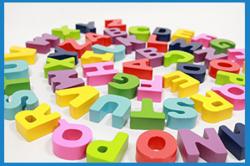Key Stage One Literacy: What Should A Child Know?
Key Stage One is a critical period in a child's literacy development. It covers the years of schooling between the ages of 5 and 7 and sets the foundation for their reading, writing, spelling, and grammar skills. By the end of Key Stage One, children are expected to have acquired a range of literacy skills that will support their future learning and communication.
In this blog post, we will explore the key areas of literacy that children should know by the end of Key Stage One. We will cover reading skills, writing skills, and spelling and grammar, highlighting the important milestones and expectations.
Reading Skills
By the end of Key Stage One, children should be able to read with fluency and comprehension. They should be able to: 
- Read and understand a range of fiction and non-fiction texts
- Recognise and decode words accurately
- Use appropriate intonation and expression when reading aloud
- Make predictions and inferences based on the text
- Summarise and retell the main events in a story
Developing strong reading skills at this stage is crucial as it lays the foundation for further learning and enjoyment of reading.
Writing Skills
At the end of Key Stage One, children should be able to write coherently and with purpose. They should be able to: 
- Write simple sentences using correct punctuation
- Use capital letters and full stops accurately
- Use conjunctions (such as 'and' or 'but') to join ideas together
- Write for different purposes, such as narratives, recounts, and explanations
- Use descriptive language and adjectives to add detail to their writing
Developing strong writing skills allows children to express themselves effectively and engage with different forms of writing.
Spelling and Grammar
By the end of Key Stage One, children should have a good grasp of basic spelling and grammar rules. They should be able to:
- Spell common words correctly

- Use capital letters for proper nouns and at the start of sentences
- Understand and use basic punctuation marks, such as commas and question marks
- Form sentences with subject-verb agreement
- Use basic plurals and possessive apostrophes
Developing strong spelling and grammar skills ensures that children's writing is clear, accurate, and effective.
Key Stage One is a crucial stage in a child's literacy journey. By the end of this stage, children should have developed solid reading, writing, spelling, and grammar skills that will serve as a strong foundation for their future learning. It is important for educators and parents to provide the necessary support and opportunities for children to develop these skills and foster a love for literacy.
By focusing on key areas such as reading fluency, coherent writing, and accurate spelling and grammar, we can ensure that children are equipped with the necessary tools to succeed in their literacy journey.
